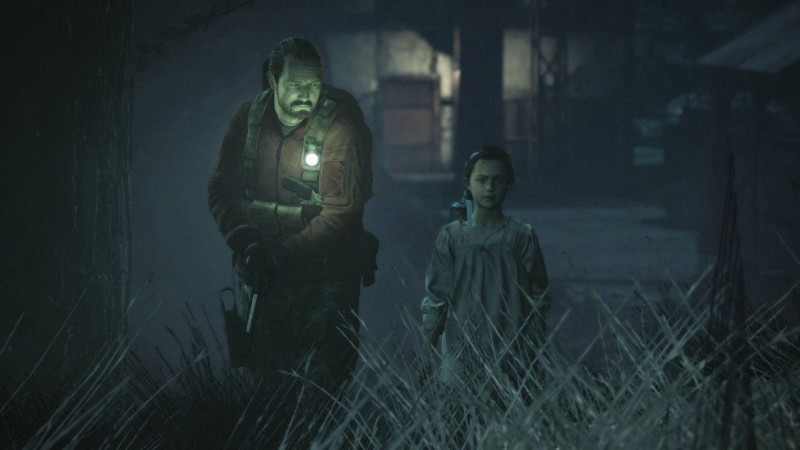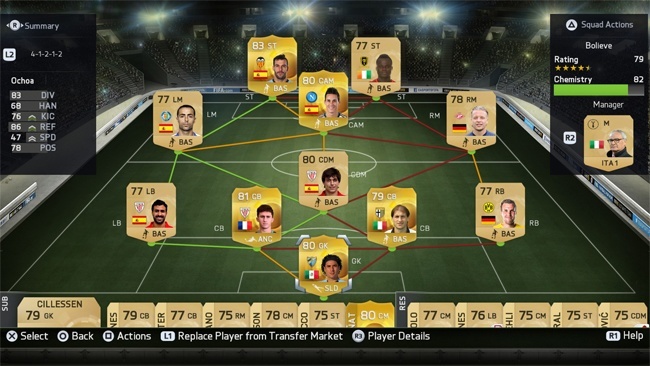Try to think of one Hollywood adaptation of a video game that's been successful. Go on, I’ll wait. You can’t do it, can you?
Did you know, that according to the popular aggregating site, Rotten Tomatoes, not one single movie based on a video game has ever received an average review score over 50%. The highest, at 44%, is Final Fantasy: the Spirits Within, a film that’s not even based on an actual game.
Incredibly, although they tend to be overwhelmingly poor in terms of quality, Hollywood has been doggedly churning video game adaptations out fairly regularly over the years. Just think about that. It’s like being consistently terrible at your job, and even though you spend all your time drawing cocks on Microsoft paint, you still get awarded a fat bonus every month, despite producing precisely nothing of any value or worth.
Politicians, basically.
I can see you’re not convinced, so let’s quickly review the evidence. It all started way back in 1993, when Super Mario Bros. was unleashed upon bewildered audiences. Fans quickly realised that it was only loosely based on the beloved Nintendo series, and when I say ‘loosely’, I mean it in the same way that Mission Impossible is ‘loosely’ based on the New Testament. They had rabid Mario fans waiting to throw money at them, and they still screwed it up. It was the equivalent of fishing with dynamite, except they managed to miss the lake entirely, instead blowing up a nearby orphanage.
In the four years following Mario Bros., no less than four films were made based on beat-‘em-up franchises. I can only imagine that, given that the story lines in games like Street Fighter and Mortal Kombat are flimsier than a woodworm riddled sheet of plywood, the games fell under the baneful of eye of Hollywood because they felt that they could just mash cool fight scenes together with as little cohesive plot as was necessary. Unsurprisingly, that’s exactly what they did.
Alarmingly, seemingly no one paid any attention to the negative feedback these movies generated, and so it wasn’t long before movies like Tomb Raider and Resident Evil were made, and much like their predecessors, they were verbally shat upon by critics. The fact that they messed up a film about a voluptuous woman who shoots dinosaurs in the face still surprises me to this day.
Unfortunately for everyone even remotely interested in quality cinema, it wasn’t long into the new millennium when Hollywood decided that making bad films wasn’t enough anymore, and so they turned their hand to awful people instead. Thus, Uwe Boll emerged, and he wasted no time in decimating as many different game franchises as possible. Responsible for such travesties as House of the Dead, Alone in the Dark, Bloodrayne and Farcry, Boll has proudly admitted that he’s never even played a videogame, stating simply that he makes these movies because, “You can make money with them”, and sadly, make money he does. You have to wonder what kind of man is shameless enough to put so little effort into his ‘profession’, and is still convinced that he’s a genius. Probably the same kind of unabashed arsehole who publicly badmouths other directors (not to mention game developers), and then challenges his naysayers to boxing matches, wherein he proceeds to pummel them silly.
If you were hoping that such a person doesn't exist, then I’m afraid I have some bad news.
In recent history, Boll’s contributions to bad cinema have mercifully dwindled, but sadly the remaining stagnant puddle of adaptations hasn’t entirely dried up. Hitman, Prince of Persia and Max Payne each had their five minutes in the spotlight before colossally flopping, proving once and for all that studio executives really don’t understand, or care about, the everyday gamer.
If that wasn’t maddening enough, upon close examination the films are always crap for the exact same reasons , and it’s been that way ever since Super Mario Bros. In nearly every case, the only good thing that can be said of any of the films is that they had ‘decent effects’ or they were ‘goofy enough to be fun’. Besides that, they’re all unanimously slated for being soulless and poorly imagined – in most cases, it’s clear that those involved had rarely even heard of, let alone played, any of the games in question. Whoever it is who’s in charge of the film’s direction (the director, I would imagine) seems to think that stripping away every layer of the source material is a sound idea, and by changing the whole lot, they can make it more accessible. It's this attitude that we find so galling as gamers; what right do these people have, people who aren't interested in games, to take something we love and completely bastardize it. It's like covering the Mona Lisa with graffiti, just to make it more appealing to kids.
Don’t get me wrong, from a screen writing point of view, I can understand how it might be difficult to squeeze down an entire game or series of games, complete with an established canon, into a two hour film, but eschewing a few details in favour of a more succinct experience is vastly different from utterly demolishing the foundations upon which the film is based. This is why we have Mario and Luigi getting into car chases, Agent 47 falling in love, Lara Croft teaming up with snarky sidekicks, and classic protagonists of the Resident Evil game series taking a back seat to psychic mega-ninja Alice in the films. By staying close to the source material they run the risk of confusing and alienating non-gamers, so they tweak and they fiddle, and after all their tinkering, they’re left with a film that is so bland and generic that it could literally be named anything, but in order to ensure that they get the gamer fan base interested, they hold onto the name, and if we’re lucky they throw in a handful of recognisable characters. It’s an underhanded way of trying to make money, and to some extent it works, but ultimately it does nothing but leave a bitter taste in the collective pie-hole of everyone unlucky enough to see it.
But that, at the end of the day, is the crux of the matter: cold, hard, cash. It would be sensationally naive to think that these projects were labours of love that simply went awry, and it’s very clear that the reason for their being is just to get bums in seats (backsides that is, not homeless people). Most shocking of all is that it works; there’s a reason that we’re now up to the fifth Resident Evil film, and it’s definitely not because of the awful cardboard acting and hashed-together-in-twenty-minutes script. It’s because no matter how many times they present us with complete rubbish, there’s always someone who’ll pay to see it.
So by now I would hope that I’ve convinced at least four of you that Hollywood and games don’t mix terribly well. It would, however, be unfair to end the rant here without addressing game developers who are also a bit guilty of cashing in on a well known name. And guilty they are; who can forget the atrocity that was the (massively ironic, given the source material) Fight Club video game? How about the diabolical Charlie’s Angels? Most of the Harry Potter games were erring dangerously close to being disastrous, and there’s been no end to the number of awful Star Wars games we’ve seen on the shelves over the years. It’s largely the same tactic that Hollywood has employed so many times; rush out a tie-in using the licensed name as the biggest draw for consumers. Generally speaking though, liberties with the source material aren't taken quite as dramatically in games adapted from films, often tending to follow the ideas laid out by the film. The trouble is, they also tend to be crap. This is especially true of tie-in games that are aimed at children; games based on cartoons and animated movies, whilst all being shoddy piles of wank, still appeal to kids and clueless grannies purely because they recognise the name and whichever hilarious character is plastered across the case.
That said, despite a lot of terrible candidates, there are actually some pretty good movie licensed games hidden amongst the stinkers. Spider-man 2 sticks out, and The Matrix: Path of Neo wasn't awful. Comparatively, even the very worst of the games still tended to be received in a more positive light than virtually every movie adaptation that’s been made. While I understand that the two are completely different mediums, and obviously judged based on different merits, it is interesting to note that games get the slightly less shitty end of the stick when it comes to the finished product.
So, should Hollywood stay away from games? Yes, absolutely. Until they prove that they can competently put together a film that doesn't completely ignore the game it's based on, then they really shouldn't bother. Have they been anything but a negative influence? Definitely not.
While it’s abundantly clear that Tinsel Town has given us nothing but muck over the years, it’s also an undeniable fact that they’ve affected the way that games are made in a big way. Credit where credit is due; in around thirty years, film making has come amazingly far - advances in CGI have had a massive impact on the way games are presented, and the use of motion capture gives us the most natural in game performances we could ask for. 3D technology has long been a component of cinema, and now it won’t be long before it’s implemented in games. Even in terms of plot and direction, the influence is apparent; games like Heavy Rain, Red Dead Redemption and The Last of Us are achingly cinematic, from the way the music swells to heighten the drama (riding into Mexico for the first time, anyone?), all the way to explosive set pieces that would give Michael Bay that tingling sensation in his pants that he quite enjoys. Characters in games are no longer mere placeholders that spout one-liners from time to time, and story lines in games can become hugely involving.
Ultimately, as frustrating as it is, it has to be said that we need Hollywood, because without them, games simply wouldn’t be the same. It’s just unfortunate that for every Halo, we’ll need to endure a whole series of awful Assassins Creed films, and for every Uncharted, Uwe Boll will wipe his arse and use the result as a script for an Angry Birds movie. It’s a high price to pay, but if it means that our games continue to improve, it’s one we’ll just have to deal with.



